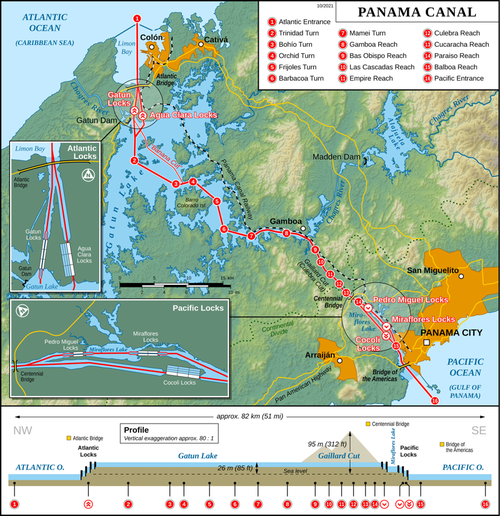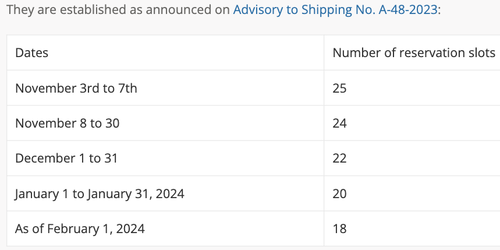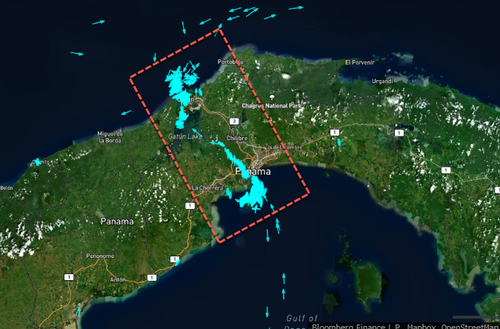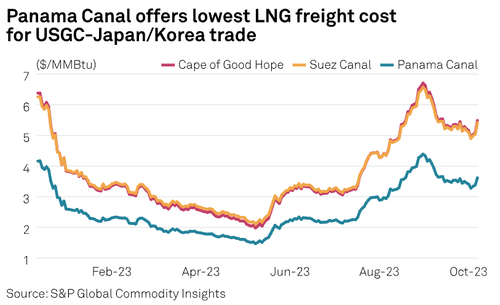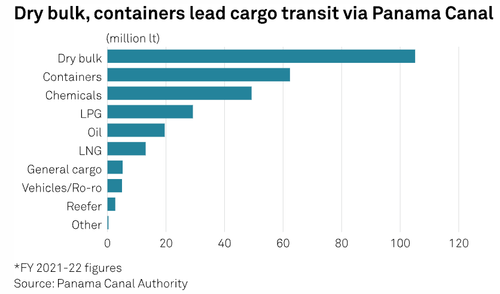El Nino Batters Panama Canal With Worst Drought In 73 Years
Panama Canal is one of the world's most important trade routes, allowing commercial vessels to sail between the Pacific and Atlantic Oceans. The canal has been battered by a severe drought this year, caused by the El Niño phenomenon (read: here & here). As a result, canal authorities continue to impose sailing restrictions, which could soon hit the waterway's transit volume.
The Panama Canal Authority (PCA) said October was "the driest since the earliest registers, 73 years ago" and "caused by the El Niño phenomenon continues to impact the Panama Canal's reservoir system and, as a result, water availability has been reduced."
What has happened? In October 2023, there has been 41% less rainfall than usual, lowering Gatun Lake to unprecedented levels for this time of year.
PCA said they're juggling between guaranteeing water supply to 50% of the population and maintaining operations in the canal:
Therefore, with less than two months left until the end of the rainy season, the Canal and the country face the challenge of the upcoming dry season with a minimum water reserve that must guarantee supply for more than 50% of the population and, at the same time, maintain the operations of the interoceanic waterway.
Canal Map
Starting from Nov. 3, booking slots for vessels to transit the canal have been slashed from 31 to 25 and will be reduced by nearly 30% to 18 by Feb. 1, 2024. In comparison, the maximum number of sustainable bookings is between 38-40 per day.
This year, PCA has implemented several restrictions on vessel passage, and this year marked the first instance of reducing the number of ships allowed to transit the canal, leading to significant delays.
The canal is a critical route for energy supplies from the Americas to Japan, Korea, and China. S&P Global reported long queues at the waterway are pushing freight costs higher:
Dry bulk, containers, chemicals, and LPG vessels are most common on the waterway.
Oystein Kalleklev, the chief executive of Avance Gas, which transports propane from the US to Asia, was quoted by NYTimes as saying: "This is the worst we have seen in terms of disruption."
Ricaurte Catin Vasquez told S&P Global, "We expect that restrictions to remain...for as long as we do not have rain."
